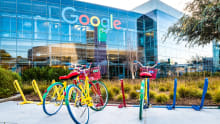HR, work and the worker: Sankar Ramamurthy

While productivity gains from technology are important, longer lasting are gains that result from work that is fulfilling and energising
Rare is the company that takes job design seriously enough to question the impact that work has on the well-being of our workforce
As technologies advance, it is inevitable that some occupations disappear and new ones replace them. This indeed is the story of human civilization and progress. Thus, motorized transport meant the death-knell of the tongawallah and the rickshaw puller. Washing machines have cast aside the dhobi. In moments of nostalgia, we ‘summon up remembrance of things past’, but know in our hearts that the good old days are gone forever. Besides, few among us would want for those days to return.
But, it is a paradox of our times that technological progress has meant that highly skilled and educated people perform non- value-adding work, which in a less technologically advanced state, was performed by the semi-skilled or unskilled. For example, we type our own reports and letters, book our tickets, prepare our expense reports, schedule our meetings and manage our calendar, thus eliminating the assistant, the secretary, the typist and the stenographer. Web check-in will soon eliminate check-in counters and personnel at airports. As our gas stations are fitted with self-service equipment, we will fill our own gas and the gas attendant will be a thing of the past.
In all of this, we must distinguish between work and the person performing it. In everyone of the cases mentioned above, the work itself remains, but the means to carry it out and the person doing so have changed. Thus, typing has not been eliminated. It is being done through the word processor and by the author himself, not by a typist using a typewriter. Checking-in is necessary at the airports, but it will be done by the traveler through the web or check-in kiosks.
The more important message though is that technologies make it possible and indeed compel us to be self-sufficient in the performance of a number of mundane tasks. We now have the means to do things, which hitherto we had done for us. Thus, the motor car, although it has not eliminated the chauffeur, has turned passengers into drivers; filling technology has reduced drivers to gas attendants; the word processor has made typists of lawyers and the ATM has made us all tellers!
Such technologies have contributed more to the creation of an egalitarian world than any instrument of social engineering. By making the knowledge worker carry out tasks hitherto performed by the less skilled or unskilled, it has invested ‘menial’ work with dignity and respectability.
On the other hand, some ‘do it yourself’ (DIY) technologies have also piled on unproductive, non value-adding work to highly paid, skilled professionals. This then, is the paradox of DIY technology: it deprives the unskilled of their jobs by transferring work to the highly skilled! The efficiency gains from the use of DIY technologies (elimination of whole swathes of clerical and support staff) must therefore, be set against the opportunity costs of the time highly skilled workers would then expend in performing mundane tasks. For example, despite the allure of freedom, which motorized transport promises, driving is so much of a non-value-adding activity and a frustrating one on our roads; as are filling gas, typing in one’s expense report, making travel bookings and so on. But, not all DIY technologies have a net adverse score. ATMs, for example, have reduced considerably the non value-adding time one spent traveling to bank branches and waiting in queues.
The purpose of these ruminations is, to point out that as HR professionals, we seldom pause to inquire into the nature of work in our organizations, from the viewpoint of employee enrichment and engagement. Engagement surveys do seek to elicit employees’ feedback on whether the work they do satisfies and challenges them, and whether they have the tools and the skills to perform their work effectively. But meaningful and purposeful work as a means of ennoblement and engagement still receives short shrift. We tend to take the nature of work as a given and concentrate our efforts instead on measuring performance and productivity. Rare is the company that takes job design seriously enough to question the impact that work has on the psychological, emotional and spiritual well-being of our workforce. Thus, when organizations are restructured, old processes are re-engineered or new ones installed, or new technologies introduced, we rarely ask what all of that means for the jobs that our people have to do. Not from the viewpoint of new job descriptions and training and so on, but in more fundamental ways:
Will the jobs energize and invigorate our workforce?
Will the change add to or reduce monotony, boredom and stress?
Are we using new technologies to exercise greater control or to empower our people?
Will the jobs dull initiative and creativity or foster them?
Will we be burdening knowledge workers with routine tasks?
Too often, business cases for change quantify the strategic and operational gains to be had from the initiative in question, but ignore the palpable but immeasurable cost of employee disengagement. We miss the point that while productivity gains from technology are important, far greater and longer lasting are gains that result from work that is fulfilling and energizing. We also forget that work that absorbs the complete and undivided attention of the worker is ennobling.
As HR professionals, we are uniquely positioned to address the challenge of work and the worker. Will we rise to the challenge?
Sankar Ramamurthy is Executive Director with PricewaterhouseCoopers and can be contacted at sankar.ramamurthy@in.pwc.com











